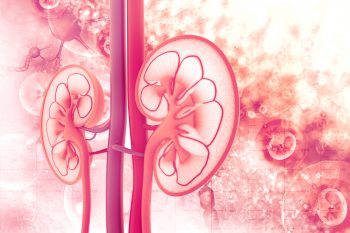
The American College of
Cardiology/American Heart Association (ACC/AHA) issued new hypertension
guidelines in 2017 that defined new hypertension thresholds. However, according
to Kyoung Hye Kong, MD, and colleagues in Seoul, Korea (the Republic
of), the evidence cited was based largely on studies conducted with a single
measurement of baseline blood pressure.
The researchers recently conducted a
study to examine the impact of the change of blood pressure stage according to
the 2017 ACC/AHA guideline on cardiovascular events, with baseline and mean
blood pressure measurements during follow-up of untreated, low-risk
populations. They reported results during a poster session at Kidney Week 2019
in a poster titled The Impact of Change of Blood Pressure Stage according to
the 2017 ACC/AHA Guideline on Cardiovascular Events among Untreated Low-Risk
Populations: A Nationwide Population-Based Cohort Study.
The retrospective, longitudinal study
included 322,562 individuals ≥40 years of age without diabetes mellitus, chronic
kidney disease, or previous cardiovascular event who were enrolled in the
Korean National Health Service-National Health Screening Cohort between 2002
and 2003. Eligible patients had not taken antihypertensive medications during
the follow-up period.
Participants were categorized
according to the 2017 guideline based on their baseline and mean blood pressure
measurement during follow-up. The primary outcome of interest was newly
developed cardiovascular disease and mortality.
During the median follow-up of 10
years, there were 2.51 cardiovascular events per 1000 person-years. In persons
with stage 1 hypertension (systolic blood pressure 130 to 139/diastolic blood
pressure 80 to 89 mmHg) on both the baseline and mean blood pressure
measurements, there was a significantly increased risk of cardiovascular events
compared with persons with blood pressure <120/80 mmHg. However, the hazard
ratios for cardiovascular events were higher using mean blood pressure rather
than the baseline blood pressure measurement.
Following categorization into 16
groups based on blood pressure stages and baseline versus mean blood pressure
measurements, the risk of the incidence of cardiovascular disease was
significantly lower using blood pressure stage calculated using the mean blood
pressure compared with the reference (i.e., the blood pressure stage remained
the same between the baseline blood pressure and mean blood pressure) in the
population with stage 1 and 2 hypertension.
In conclusion, the researchers said,
“Stage 1 and 2 hypertension, defined by the 2017 ACC/AHA guideline, were
significantly associated with an increase of cardiovascular events in the
analysis with baseline and mean blood
pressure measurement among untreated, low-risk individuals. However, the mean
blood pressure was superior to the baseline blood pressure for predicting
cardiovascular events. Moreover, the study suggests that physicians need to
lower blood pressure stage to prevent the occurrence of cardiovascular disease
when their patients, even those at low risk for cardiovascular events, are in
stage 1 or 2 hypertension groups at baseline.”
Source: Kong KH, Oh HJ, Ryu D-R. The
impact of change of blood pressure stage according to the 2017 ACC/AHA
guideline on cardiovascular events among untreated low-risk populations: A
nationwide population-based cohort study. Abstract of a poster presented at the
American Society of Nephrology Kidney Week 2019 (Abstract TH-PO684), November
7, 2019, Washington, DC.






 © 2025 Mashup Media, LLC, a Formedics Property. All Rights Reserved.
© 2025 Mashup Media, LLC, a Formedics Property. All Rights Reserved.